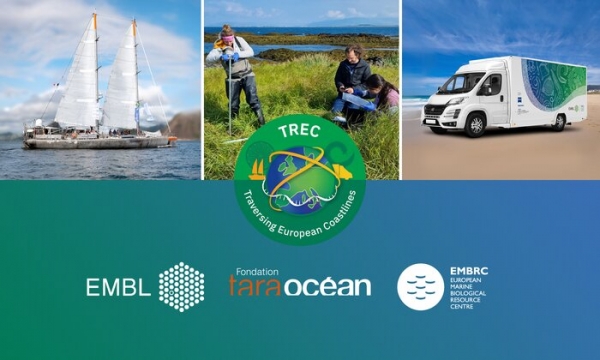Europe’s life science laboratory EMBL is leading the TREC project: the first pan-European and cross-disciplinary effort to examine life in its natural context at unprecedented scales.
Europe’s coastlines are environments rich in biodiversity that also represent important sites of industry, culture, and heritage. Forty per cent of Europe’s population live within a coastal region, and many European societies have been, and still are, defined by their relationships with the sea.
Our seas and coasts represent key ecosystems that host an extremely rich diversity of life and play critical roles in the stability and sustainability of wider ecosystems. However, anthropogenic interferences such as pollution, farming, and building construction, as well as the impact of climate change, are leading to accelerated loss of species’ genetic diversity and destruction of functional ecosystems.
To minimise the future impact of such external factors on coastal biodiversity, we must understand the molecular and cellular basis of how organisms interact in ecosystems and react to external pressures in the context of their natural habitats.
Read more at European Molecular Biology Laboratory
Image: TREC – Traversing European Coastlines – is a pan-European expedition to study coastal ecosystems and their response to the environment, on scales from molecules to communities (Credit: Creative Team/EMBL, Arthur Larie/Fondation Tara Océan, Eva Klose)


